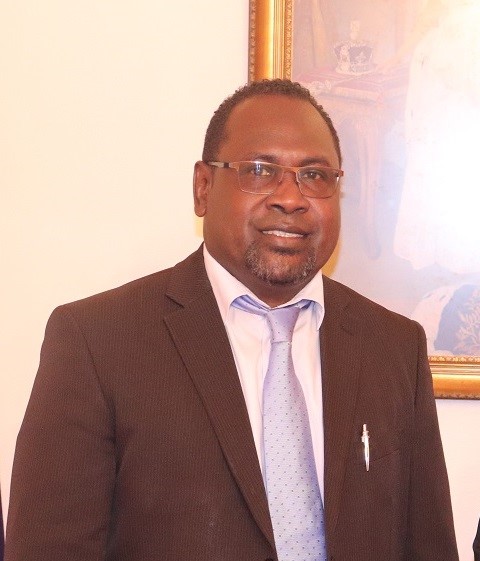A three days seminar on the Solomon Islands National Employment Policy was held in Honiara this week from 14 to 16 September to design and formulate the National Employment Policy (NEP) for inclusive structural transformation and environmental sustainability.
The International Labour Organisation (ILO) in partnership with Ministry of Commerce, Industry, Labour and Immigration (MCILI) organised the workshop in response to the Policy Redirection of the National Government that requires reforms in Employment Policies and is indirect response to recommendations of the Rapid Assessment (RA) on the Impact of COVID 19 on Employment and Businesses in Solomon Islands, which the ILO supported its members to undertake in early 2021.
Specific Recommendations call for comprehensive policies on employment in the country. The RA was designed based on the policy response framework developed by ILO for tackling the economic and social impact of the COVID 19 crisis, which was localized to Solomon Islands context.
The NEP development is in line with the RA recommendation 1: Stimulating Economy and Economic Activities, under section (v) Development of National Employment Policy to reflect the future of work.
In his address to open the workshop, Permanent Secretary of the Ministry of Commerce, Industry, Labour and Immigration Riley Mesepitu said the labour market situation in the Solomon Islands, and in the Pacific region have always been inherently susceptible to disruptions like external economic and financial shocks and natural disasters which has had direct effect on growth, impact on livelihoods and often lead to a high degree of economic volatility, especially due to limited fiscal space.
“These disruptions is felt more severely in Small Island Development States (SIDS) such as Solomon Islands, which depends a lot on external trade, tourism, remittances, and foreign aid inflow to drive their domestic economic activities,” Mesepitu said.
In simple terms, the sources of growth for the small economies are driven through its major trading partners and their connectivity to the regional/global economy. As a developing country, Solomon Islands has limited economic resources and lacks financial, technical, and technological capacity to effectively adapt and manage large-scale disasters including pandemics.
Mesepitu said his Ministry is not lost to these elements of our limitations as our country faces a pandemic that in our considerations has called for a State of Emergency to be declared.
As a result, the Ministry has undertaken various measures to gather all relevant information to assist the government to fully comprehend the impact in various sectors in the economy.
With technical and financial, support from the ILO in early 2021 the Ministry in partnership with the Chamber of Commerce and Solomon Islands Council of Trade Unions undertook the Rapid Assessment on the impact of covid-19 on employment and businesses in Solomon Islands.
The main objective of this assessment was to understand the implications of COVID-19 and related responses on the labour market in Solomon Islands, which includes an analysis of impact on employment, businesses, and household incomes, and provide recommendations to the Government for adoption.
This National Employment Policy seminar is clearly part of the recommendation of the assessment.
The NEP seminar tries to explain the requirements for the development and implementation of a high-quality gender-responsive policy based on relevant information and analysis for review and adoption by the respective key authorities in the country.
It provides practical guidance for the formulation of employment policy framework structured by the current conditions related amongst many other crucial factors, to crises such as Covid-19, and a host of national priorities. It also discuss elements related to strategic planning, consultation, coordination, and preparation of policy options, implementation and monitoring.
To promote an inclusive, job-rich recovery from the COVID-19 crisis, Solomon Islands needs a bold and innovative employment-focused policy agenda. In this context, gender-responsive national employment policies will play an important role but will need to be adapted in terms of both existing policy frameworks and the formulation of new recovery strategies. The type of adaptation will also depend critically on the situation in the country such as the current policy frameworks, fiscal space and institutional capacity.
The purpose of the seminar is to help constituents and other state administration bodies to understand the requirements for the development and implementation of a high-quality gender-responsive policy based on relevant information and analysis for review and adoption by the respective key authorities in the country.
Seminar participants have been selected by responsible organizations and offices that paved the way for a realistic policy on National Employment that is simple to understand, to follow, and to place them in a concerted framework to move the country towards a more stable, and equal level playing field, beneficial for everyone.
Participants were from the Ministry of Commerce Executive, Foreign Investments Division, Immigration Division, Labour Division, Marketing Division, Ministry of Development Planning and Aid Coordination, Ministry of Provincial Government and Institutional Strengthening, Ministry of Education and Human Resource Development, The Central bank, The SI National Provident Fund, The SI Chamber of Commerce, The Workers Union, and the Solomon Islands National University.
The seminar has provided practical guidance for the formulation of an Employment Policy Framework structured by the current conditions related to national priorities and the COVID-19 crisis.
The Labour Division that has been tasked with the formulation of the National Employment Policy of the Country is facilitating the Workshop.
-GCU
